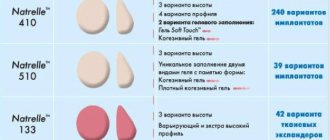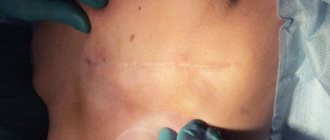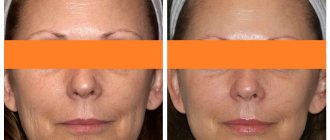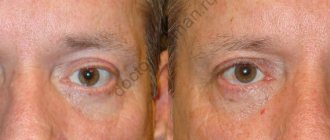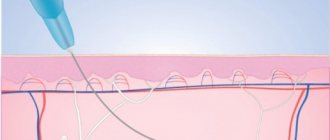On August 23, 2021, at the age of 83, the head of the Department of Plastic and Maxillofacial Surgery of the RMANPO, Doctor of Medical Sciences, Professor, Honored Scientist of the Russian Federation Alexander Ivanovich Nerobeev passed away.
Alexander Ivanovich was born on July 17, 1938 in Tver. After graduating from the dental faculty of the Tver Medical Institute, he went to Yakutsk, where for 3 years he worked in the Republican clinic and hospital as a dental surgeon. In 1964, he entered the clinical residency of the Central National University at the Department of Surgical Dentistry. In 1966 he became an assistant, then an associate professor, a professor, and since 1987 - the head of the department.
Alexander Ivanovich was one of the leaders of modern plastic and maxillofacial surgery, co-author of the “Manual of Maxillofacial Surgery”, author and co-author of 7 monographs on surgery of the face and jaws. For achievements in scientific and practical activities, he was awarded the “Excellence in Health Care” badge, the “Kremlin Medicine, 400 Years” badge, certificates of honor from the Russian Ministry of Health, the Academy of Medical Sciences, the Federation Council Committee on Social Policy and Healthcare, the Commemorative Medal named after I.Ya. Sendulsky. In 1997 and 2007 he was awarded prizes from the Government of the Russian Federation for scientific achievements. Since 1997 he has been a member of the Association of Oral and Maxillofacial Surgeons of Great Britain.
Nerobeev A.I. was one of the founders of the Society of Plastic and Reconstructive Surgeons (OPREH), from 2005 to 2021 he headed the maxillofacial surgery clinic of the Central Scientific Research Institute, from 1987 until the end of his life he was the chief specialist of the Medical Center under the President of Russia.
At different periods of his professional activity, he was involved in the development of methods for treating injuries to the maxillofacial area and severe inflammatory processes, oncological diseases, the introduction of microsurgical techniques in reconstructive surgery (State Prize 1997), and the improvement of plastic surgery methods (State Prize 2007). He often traveled abroad with demonstration operations and lectures.
Alexander Ivanovich was a multifaceted, amazing intellectual, an expert and connoisseur of history, literature, art, and architecture.
The scale of personality Nerobeeva A.I. colossal. His contribution to the activities of the Academy, to the development of domestic medicine, science and medical education is enormous and invaluable.
The Academy, domestic and Moscow healthcare, Central Research Institute of Infrastructure and Maxillofacial Surgery, the entire scientific, pedagogical and surgical community suffered an irreparable loss. A great man, one of the last outstanding Soviet medical scientists of the 20th century, has passed away. But the case of Nerobeev A.I. His children and students, residents and graduate students of the Department of Plastic and Maxillofacial Surgery will continue, the first lesson of which will be devoted to the life and work of Alexander Ivanovich.
The Academy and the staff of the department mourn and express deep condolences to the family and friends of A.I. Nerobeev.
The memory of Alexander Ivanovich Nerobeev will forever remain in our hearts!
Farewell to Alexander Ivanovich Nerobeev will take place at st. Marshala Timoshenko, 25 in the Great Hall 08/25/2021 (Wednesday) at 13.30.
Alexander Nerobeev passed away
At the 83rd year of his life, Professor Alexander Nerobeev, a pioneer of domestic plastic surgery and microsurgery, head of the Department of Plastic and Maxillofacial Surgery of the Russian Medical Academy of Postgraduate Education, head of the Center for Reconstructive Surgery of the Face and Neck of the National Medical Research Center Central Research Institute of Maxillofacial Surgery, passed away. The farewell will take place on August 25 at 14:00 in the Great Farewell Hall of the Central Clinical Hospital No. 1 of the Administration of the President of the Russian Federation.
“Our teacher, friend and true professional in his field, professor, doctor of medical sciences, who stood at the origins of plastic surgery in our country, Alexander Ivanovich Nerobeev, has passed away. This is an irreparable loss for all of us. His contribution to the formation and development of our specialty and medicine as a whole cannot be overestimated. Until the last days of his life, he worked and took an active part in all professional events, gave lectures and demonstration operations in many countries near and far abroad,” says the obituary on the website of the Russian Dental Association.
Alexander Nerobeev graduated from the Tver Medical Institute with a degree in dentistry. For the first three years he worked in the traumatology department at a regional hospital in Yakutia, then entered graduate school at the Department of Facial Reconstructive Surgery of the Institute for Advanced Medical Studies. He defended his PhD thesis on traumatic osteomyelitis of the mandible. In 1983, he became the first dentist in the country to defend his doctorate in plastic surgery. He continued his teaching activities at the Department of Surgical Dentistry of the Russian Medical Academy of Postgraduate Education (now RMANPO), and his clinical practice at City Clinical Hospital No. 36.
In 1985, he headed the department of reconstructive surgery at the Central Research Institute of Dentistry. Subsequently he founded and directed the Moscow Medical. Over the years of work, he performed many complex reconstructive surgeries; under his leadership, 100–150 such interventions were performed annually at the Center for Reconstructive Surgery of the Face and Neck of the National Medical Research Center of the Central Research Institute of Chronic and Maxillofacial Surgery.
Professor Alexander Nerobeev is the author of seven monographs, 9 doctoral and 35 candidate dissertations were defended under his leadership. He devoted many years to the development of the specialty of plastic surgery, worried and worried about its future. “Even only those who want to earn money enter residency, and they learn obviously easy operations. When I do a facelift, there will be no crowd in the operating room; all the residents will stand behind me. And during a reconstructive operation, for example, plastic surgery of a post-traumatic defect on the face, one or two residents will be present. So it turns out that we are working, but the number of great surgeons in the industry is not increasing,” he stated in an interview with Vademecum.
Alexander Nerobeev is a multiple winner of the Russian Government Prize for the development of new surgical methods, an honorary member of the Russian Society of Plastic, Reconstructive and Aesthetic Surgery, a member of the Association of Maxillofacial Surgeons of Great Britain, and President of the Association of Maxillofacial Surgeons of Russia.
The editors of Vademecum express their condolences to the family, colleagues and students of Alexander Ivanovich.
Bright memory!
Source StAR
Subscribe to our channel in Telegram Subscribe to our channel in Yandex Zen
Share on social networks
+1 +1 +1 +1
Nerobeev: 90% of plastic surgeons have virtually no knowledge of surgery
— What should a patient rely on in this case when choosing a doctor? - First of all, on your own brains. Many patients focus on prices. Some are looking for cheaper places, traveling from the capital to neighboring cities, where they perform the same operations for three to four times less. Others are looking for something more expensive. There is no single system.
— Do you think that it is necessary to conduct an independent assessment of plastic surgery clinics?
- Yes, this definitely needs to be done. In the minds of most Russians, plastic surgery now comes down to the ability to put threads under the skin and insert fillers. Even my students, who are now studying for two years in residency in plastic surgery, are not interested in everything else; they already know in advance that they will inject Botox, straighten wrinkles, fill holes with fillers. It's a win-win for them. Accordingly, why study, why know everything?
How are we doing now? The man graduated from medical school at the age of 23, two years later, after residency, he received a certificate as a plastic surgeon. That's it, go for a walk, Vasya. What could he have time to learn? Therefore, now 90% of so-called plastic surgeons practically do not know surgery.
Nobody wants to study for a long time, everyone rather needs to earn money. After a year of residency, everyone settled in some private clinics, some receive patients at home. We wiped the skin with alcohol and started injecting.
— How long does it take to study this specialty, in your opinion?
- Four years minimum. Moreover, according to a very strict program. At one time, Academician Milanov and I developed a pilot that required passing exams in all specialties. But we do not have centers in the country where all the necessary operations are performed.
For example, at our department at the Institute of Dentistry and Maxillofacial Surgery, we can perform any operations in the face and head - both microsurgical and aesthetic. But there are only 4-5 such centers in the country.
In addition, there is no single institute where breasts, abdomen, buttocks, and so on can be done with equal quality. The specialty is at the beginning of its development, and for now it is fragmented.
— Is work underway to prepare professional educational standards?
— It’s still very weak. A paradox occurred: when the specialty was introduced, institutes received the right to teach plastic surgery, including for money. And since this training cost 150-200 thousand rubles a year, medical universities in some cities began to train 500 plastic surgeons per year, although before that in these cities, as far as I know, there was not a single plastic surgeon.
Universities simply found a way to make good money. But when money comes first, nothing good ever happens. Unfortunately, we cannot prevent institutions from doing this. To prevent this from happening, professional educational standards in the industry must exist.
Maxillofacial
What is shown in the photographs that maxillofacial surgeon Vitaly Usik shows me is not always clear at first glance. Some photographs show people literally without a face. These are victims of car accidents, accidents or simply everyday dramas, who were brought to the 1st City Hospital by ambulance. Here, on the basis of the Department of Maxillofacial Surgery, the Department of the Russian State Medical University is located. And here, every day, the victims are literally given their faces back. It's hard to believe that such injuries could be compatible with life. The fact that sometimes no trace of these injuries remains seems incredible.
“This man had half his skull blown off in a car accident,” says Dr. Usik. “Six months later he came to us - a handsome man, there weren’t even any scars left on his face. I have been working at the Department of Oral and Maxillofacial Surgery of the Russian State Medical University since 1993. Working methods have changed a lot since then. We can completely restore the entire facial skeleton after a severe injury. Many operations are performed through a cranial incision, that is, through an incision on the scalp, the soft tissues of the face are completely removed, the facial skeleton is restored using titanium plates and meshes, and then the face is sewn back on.
If a small flap of skin is moved from an adjacent area, made incisions, stretched, and when it takes root and heals, the scars are polished, then in the end the damage will not be noticeable. However, there is a natural tendency towards hypertrophied scars, and then even small scars leave visible scars. If a person has lost a lip, it is possible to transplant not just skin, but a musculocutaneous flap. These are very complex microsurgical operations.”
The places where such operations are performed in Moscow can be counted on one hand. In addition to the 1st Gradskaya, these are the Moscow Medical Academy, the Medical and Dental University, City Hospital #36 and the Central Research Institute of Dentistry.
There are also a number of commercial clinics in the capital that also declare similar activities, however, according to Vitaly Usik, they should not be trusted: “Some patients, even after a serious car accident, are more interested in comfortable wards than in qualified medical care. It seems to them that the more expensive the services, the better, so they go to private elite clinics. Then often colleagues from these clinics call us and ask us to operate on those patients. As a rule, we refuse, because a well-done operation is only half the success; it is also important to treat the patient correctly. If complications arise during rehabilitation, the private clinic will blame everything on the invited surgeon and demand compensation through the court. Of course, when we are officially invited by colleagues from the Botkin Hospital or the Sklifosovsky Institute, we usually do not refuse them. They don’t have their own oral surgery department, but they do provide proper patient care.”
However, there are also few private clinics that would undertake maxillofacial surgeries; most of them offer plastic and aesthetic surgery services.
There really isn't much in common between oral surgery and plastic surgery. Maxillofacial surgery affects the facial skeleton, while plastic surgery deals with soft tissues. Oral and maxillofacial surgeons deal primarily with trauma patients, while aesthetic surgeons deal with healthy people. Another difference that is unique to Russia is that maxillofacial surgery as an independent specialty appeared relatively recently, while plastic surgery is still not recognized.
ART-Clinic Clinic of plastic surgery and cosmetology
Type of institution
: clinics
Specialization
: dietetics, cosmetology, plastic surgery
The ART-Clinic Clinic of Plastic Surgery and Cosmetology has united people whose professional credo is absolute responsibility for their life’s work.
Our doctors carefully study the problems of patients, and if a comprehensive solution to the issue is required, they are sure to involve other highly qualified specialists in the discussion. The ART Clinic plastic surgery and cosmetology clinic has united people whose professional credo is absolute responsibility for their life’s work. Our doctors carefully study the problems of patients, and if a comprehensive solution to the issue is required, they are sure to involve other highly qualified specialists in the discussion. For each of our patients, an individual treatment program is developed, which includes all stages: consultations, inpatient and outpatient treatment. Plastic surgeons and cosmetologists at the clinic work closely; individual programs have been developed, including pre- and post-operative and cosmetic care.
HEAD OF THE CLINIC PROFESSOR, DOCTOR OF MEDICAL SCIENCES, A.I. NEROBEEV
The ART-Clinic Center for Plastic Surgery and Cosmetology is the maximum range of possibilities in the field of plastic and aesthetic surgery in optimal combination with medical cosmetology. Through the efforts and energy of Professor Alexander Nerobeev, a school of unique specialists (doctors and candidates of science) has been created who are able to successfully manage the most serious cases, including complications after plastic surgery.
The clinic has excellent equipment and uses the latest technologies for plastic surgery. Ultrasonic liposuction, radio wave scalpel, endoscopic equipment for face and breast plastic surgery are not a complete list of equipment at ART Clinics. The clinic uses only high-quality sterilization, an individual set of instruments is prepared for each operation, and patients are provided with disposable surgical linens. The clinic's own hospital consists of comfortable single rooms.
ART Clinic doctors maintain close ties with leading plastic surgery specialists around the world. They constantly improve their knowledge, including abroad, and are always aware of the latest advances in the field of global plastic and aesthetic surgery. Recognized specialists from the USA and European countries are invited to perform operations at the ART Clinic.
Today, the level of plastic surgery is such that the same cosmetic operation can be performed in completely different ways. The cost of options for the same operation may differ several times. The clinic's doctors are proficient in all methods of cosmetic surgery, both traditional and unique. Therefore, based on the patient’s interests and financial capabilities, the best option can be selected among the wide variety of procedures offered.
License of the Department of Health of the City of Moscow: series MO-01 No. LO-77-01-000122 JSC “Clinic of Plastic Surgery and Cosmetology “ART-Clinic” Location: Central Administrative District, 125047, Moscow, 4th Tverskaya-Yamskaya St., no. 16, building 3 TIN 7710369885 Has the right to carry out medical activities at the facility at the address: Central Administrative District, 125047, Moscow, Fadeeva St., 5, building 1
show more
Hide
The brain is the head of everything
“I was very surprised by the appeals of Zhanna Friske and Sergei Filin to doctors in Germany: in Russia, neuro- and microsurgery is no worse than in Europe”
Alexander Ivanovich Nerobeev came to the editorial office (by the way, on his own, not by car) to answer questions from our readers in an online conference. And practically the first question is about the sensational story about Zhanna Friske’s brain cancer. Fans, our readers are really concerned about the singer’s health, bombarding the editors: “At what stage can brain cancer be operated on, and is this disease curable?” Alexander Ivanovich did not answer immediately. It was clear that he was even embarrassed for his compatriots - there are many such stories in Russia (and in his practice). And if the cancer is not advanced, Russian specialists cope no worse than in Europe and Israel. Moreover, as our guest said, in the clinic where he works, today there are three patients who, having tried their health abroad, returned to Russia for further treatment. And as for Friske...
“Since the location and nature of the tumor are unknown, it is difficult to say whether this disease is curable,” Nerobeev said. — We need to know the results of the research. Judging by the frame that was shown on TV, Zhanna has serious changes in her face - it is swollen. This suggests that the situation is advanced, the damage is quite severe, and there is a violation of metabolic processes in her body. It all depends on the location of the tumor and the stage of the disease. If the tumor is a so-called stem tumor (the brain stem is affected, where all the vital centers are located - breathing, cardiac activity, etc.), then a large tumor does not even have time to develop: the person can die very quickly. There are also relatively hidden places in the brain where the tumor reaches large sizes (for example, the so-called meningiomas - tumors growing from the cells of the arachnoid mater, from the tissue surrounding the brain). Such tumors grow slowly and are often operated on. The brain is such a complex structure that everything depends not only on the location of the tumor, but also on the degree of aggression. For a tumor with pronounced aggressiveness, radiation therapy or gamma knife helps better, and for a tumor with unexpressed aggression, surgical treatment is more successful.
Photo: Liliya Sharlovskaya
I was very surprised by Zhanna Friske’s hospitalization in a German clinic, because the Russian Research Institute of Neurosurgery named after. N.N. Burdenko (this is generally recognized) is one of the best in the world. I was also perplexed about the trip to Germany for treatment of the artistic director of the Bolshoi Theater Sergei Filin, whose face and eyes were damaged by acid. First, Filin was put in City Clinical Hospital No. 36, which is our base. I called there and offered help. The competence of our specialists in this field is no worse than foreign ones. But they told me: “The patient is not interested in providing assistance in Russia, he will be treated in Germany.” To be honest, this offends me purely professionally. I have been to Germany many times, I even worked there at one time (performing demonstration operations) and I know that the competence of our neurosurgeons is no lower than foreign ones. Including German ones. What is surprising is the desire of famous people to seek treatment somewhere abroad, without asking what is available in Russia. This outrages me: our specialists in these areas are no worse - they perform such operations at a good level.
— By the way, there are cases, and they are not isolated, when, after receiving treatment in Western clinics, patients return to Russian doctors for help. I also know Israeli medicine well (by the way, now I have two patients who were operated on there, but without effect, and they returned to us for treatment), concluded Nerobeev.
Truly, there are no prophets in their own country. Although neurosurgery and microsurgery in Russia, at least since the 80s of the last century, are almost ahead of the rest. What is the famous N.N. Burdenko Research Institute of Neurosurgery worth (recognized as one of the best in the world). Real luminaries of medicine work there. An outstanding neurosurgeon, a world-famous scientist, the director of this institute, Alexander Nikolaevich KONOVALOV is one of the three best neurosurgeons in the world. Over the years of work, he saved more than 15 thousand seriously ill patients. Last year he turned 80 years old, but even today he performs 2-3 operations a day. Moreover, he mostly does the hardest ones himself. People come to him from all over the country and often from abroad for treatment. Yes, abroad, such surgeons would be torn off with their hands, as they say in such cases. With their hands!
And our guest Alexander Nikolaevich NEROBEEV also has enough merits and skills for his fatherland. More than 20 years ago (long before the separation of the Siamese twins Zita and Gita), the neurosurgeon Konovalov invited Nerobeev to take part in the separation of conjoined Siamese twins from the Baltic states. He was also invited to operate at other leading clinics in Moscow - at the Oncological Institute. P.A. Herzen, at the Russian Scientific Research Center named after. N.N. Blokhina, A.V. Vishnevsky Institute of Surgery and others. At the request of foreign societies, Nerobeev performed demonstration operations and lectures in Germany, South Korea, and China. He is a full member of the plastic surgery societies of Great Britain and Italy.
Our expert Nerobeev has also succeeded in today's specialty of cosmetic surgery - he was twice awarded by the Government of the Russian Federation for the development of new methods of plastic surgery for patients who were seriously injured as a result of accidents, explosions, and burns. And for 20 years he has been heading the clinic of the Central Research Institute of Dentistry and Maxillofacial Surgery, which is the largest federal center for the treatment of patients with problems in the face and neck. And for almost two decades he also heads the department of cosmetology and reconstructive maxillofacial surgery at the Institute for Advanced Medical Studies; For 35 years he has served as the chief specialist in plastic surgery at the medical center under the President of the Russian Federation. Author of 7 monographs...
Maybe it would not be worth listing all these merits of our unique surgeons, but, as they say, it’s a shame for the country.
“In an amicable way, in every federal region of Russia (there are 7 of them) it would be necessary to create branches of the Research Institute named after. Burdenko"
And our expert’s name matches him: Alexander Ivanovich Nerobeev is a timid man. He knows the problems in his surgical field and is not afraid to speak up about them. Our conversation spontaneously led to funding for Russia’s only state-owned Central Research Institute of Dentistry and Maxillofacial Surgery. Nevertheless, the most severe, “emergency” patients from all over the country, for whom they could not get help anywhere, are sent to this institute for treatment.
— State funding for our institute has been sharply reduced this year, and we don’t yet know why. We deal with particularly difficult cases and can perform up to one and a half thousand such operations per year. The institute has completed a colossal renovation, opened a new building, opened five operating rooms, and installed modern equipment. But only 600 quotas were allocated - the same number as they were given last year, when repairs were underway and only one operating table was used. Now that the renovation is complete, there are 5 operating tables and we can perform 3 times more operations, still funded to a minimum (and of the 600 quotas, a third are for children). We are, of course, in a trance, because these quotas will end in 3 months. What to do next?
Photo: Kirill Iskoldsky
— And the queues for you are probably long: car injuries, explosions, fires, especially in big cities, happen every day, and you can only operate on 600 victims. From all over the country! For the whole year!
— Today we have 400 people on the waiting list. Four hundred injured patients are waiting their turn for surgery. Among them there are also very heavy ones. Many are sent from Sakhalin and the Far East. And even from Novosibirsk. Although I used to think that the capital of Siberia is, as it were, a bastion on the way of patients to Moscow: it takes on seriously injured patients from the east of the country. But that's not true. In an amicable way, in each federal region of Russia (there are 7 of them) it would be necessary to create branches of the Research Institute named after. Burdenko, where its specialists would deal with severe injuries and other serious cases. But for now this remains just a dream. And it turns out that the affected people of our large country can only receive help at the level of Western clinics in the capital, right here, where absolutely modern methods are used.
— Alexander Ivanovich, as for treatment protocols, do we have them too? For example, with the same brain cancer. It is believed that in Germany and Israel there are clearly legalized rules of treatment: for which diseases, which examinations must be done and what treatment should be in a particular case...
— We also have treatment protocols for some specialties, and we are still working on others. As for brain oncology, I can’t answer for sure, but I know that at the Research Institute. Burdenko, under the leadership of Academician Konovalov, these methods work. For each specialty in Russia there are specialists of the highest level who can perform any operation no worse than in Germany and Israel. I cannot agree that our medicine is worse. But it is a fact that in Russia there are a lot of people who are indifferent to their health.
True, there are those who, with the slightest pimple, run to the doctors in horror. Men are more often indifferent to their health. Although, for example, there are benign tumors on the face, when they can be removed without problems.
“Cancer in young people is much more severe and transient”
— They say that if a person has a brain tumor, his vision may disappear. Can vision be restored after its removal?
— Yes, I had a friend who lost his sight. Professor Konovalov just operated on him. I attended this operation and was surprised (the tumor was microscopic, no more than 3 mm), but it was in the place where the visual pathways intersect. The professor carefully removed this tumor, and the patient’s vision was restored. 15 years have passed since then, and the person sees. In such cases, it all depends on whether this nerve tract is already affected or not. If the tumor is in the center, then even after its removal, vision may not return. And if it’s somewhere on the side, then after its removal the patient can see. And again, the result depends on what kind of tumor and where it is localized.
Personally, I deal a lot with facial paralysis, where a person cannot speak when they are drooling. And when he eats, food falls out of his mouth. Such operations, without exaggeration, give good results. The nerve can be transplanted. For example, to restore facial movement, we use the masseteric nerve. But in a number of patients, all three nerves are affected (trigeminal, auditory, food), then we have to look for other options where to get the nerve.
But it is very important to know: the older a person is, the slower the tumor grows - this is already natural. Cancer in young people is much more severe and fleeting than cancer in older people, which also needs to be taken into account.
— Strokes are also younger now. Have Russian clinics learned to cope with severe cases?
— It depends on what kind of stroke and in what zone. Someone is completely rehabilitated, which is rare. And some people never recover after a stroke. The brain has its own circulation of brain fluid, its own pathways. Medicine can do a lot, but not everything. There are cases when it is simply impossible to cure a person, especially after a stroke. People are dying everywhere. Alas. There are no eternal people. Of course, if you compare the average American city and the average Russian one (for example, Chicago and Kemerovo), then I am sure: in Chicago strokes are treated better than in Kemerovo.
— What if we compare Moscow with New York?
- I'm not sure what's better there. I visited clinics in New York, particularly in the Beverly Hills area. And in general, I have been to all the major clinics in the world: in Singapore, in Germany, in Israel, in England, in Brazil... I did not see any fundamental difference in treatment in the field of neurology, for example, in comparison with the Burdenko Research Institute. Although I know very rich Russians, for whom money is not an issue, they do not receive treatment in Russia. Yes, the level of surgical operations we perform is comparable to theirs. But the nursing and after-care services in well-known European clinics are incomparably better than in Russia. This is true. For example, in Germany: a person is brought in after any operation and on the same day in the evening he is given a full body massage. They treat him individually—they immediately assign him a physical therapy doctor who will make the patient walk, etc.
We don't have that. Alas, there is no service for bringing the patient to discharge in our country yet. True, before, our patients were kept in hospitals for 3 weeks after surgery. Now 5-6 days and go home. And in America, after a complex operation, they can be discharged from the clinic the next day, but not home, but to a special rehabilitation center. But with the same advanced stroke, there is no panacea anywhere. I know one patient (she suffered a stroke and was hospitalized in Kremlevka). She was then sent to West Germany to a rehabilitation center after a stroke. There is a swimming pool, a massage therapist, and a specialist in physical therapy. And still nothing was restored. In case of a stroke, it is very important to provide assistance in the first hours.
And cancer today is not a death sentence. I operated on many of them 20–30 years ago, and they are still alive. You just need to meet two conditions: contact a specialist on time. And if something didn’t work out for one doctor the first time, you need to look for another specialist. It is important to have a second and third opinion. And one more thing: it’s not a fact that you can get a good doctor for money.
True, the individual skill of the surgeon fades into the background. New robotic techniques are emerging where the operation is calculated with an accuracy of 1 mm or less. It is more difficult for a surgeon to maintain such precision, especially when the operation is performed at a great distance. Such manipulations are allowed to be performed by robots. But the union of physicists, mathematicians and engineers is important. The vector from where the beam will go to the tumor is calculated. The surgeon has a navigator. Moreover, the computer shows to what depth it is necessary to go in order to remove the tumor completely and not damage healthy tissue. Now, by the way, removal of the prostate gland in some cases is performed by the Da Vinci robot.
Today there are so-called simulators; many manipulations can be practiced on them. We have devices that help you practice manual techniques.
— Does the level of training of specialists in Russia in your field meet the requirements of the time?
— Young surgeons often lack competence, and sometimes they have to do things for them. But I am far from thinking that they are not succeeding because of indifference to the profession. The doctor is always pleased when he sees a good result. And the lack of theoretical knowledge, if desired, can be compensated for by practice. True, this will take more time.
— And the last question that was asked to expert Nerobeev is seasonal. “I have a sickness of the day,” Muscovite Elena wrote to the editor. — During frosts, teeth and gums hurt, there is pain in the temple, neck, ear and even in half of the tongue. What does this mean and what should I do?
“Most likely, this is neuritis of the trigeminal nerve (not the facial one),” Dr. Nerobeev advised in absentia. - We need to be examined by a neurologist. There is also the so-called cold neuritis - during frosts, vascular spasms begin. We need to check the blood flow. In cases of severe pain, you can inject a complex of special vitamins that improve the metabolism of nervous tissue. In the future, after the pain subsides, switch to pill therapy. And the non-steroidal anti-inflammatory drug diclofenac, from the group of phenylacetic acid derivatives, will help relieve vascular spasms. And complete the treatment with physical therapy. True, I don’t like to prescribe physiotherapy and treatment in general “in the dark”: it would be necessary to do a tomography of the head. There is a dental and neurological pain center at City Hospital No. 50; you can go there.
Plastic beauty
The first plastic surgeries began to be performed in the Soviet Union almost 70 years ago, but this specialty is not in the registry even today. This is probably a kind of legacy of the Soviet era, when aesthetic surgery was considered a useless science. Alexander Nerobeev, head of the Center for Reconstructive Craniomaxillofacial Surgery of the Central Research Institute of Dentistry: “Even 15 years ago, plastic surgery seemed like a whim to medical officials. Then they told me that it was necessary to sew on the workers’ fingers so that they could stand at the machines again. And I, in their opinion, was doing nonsense. For example, I helped oncologists adjust the breasts of patients after breast cancer removal.” Valentina Zmazova, Deputy Director of the Institute of Plastic Surgery and Cosmetology: “We have repeatedly appealed to the Ministry of Health and the Ministry of Health and Social Development to have a new specialty approved. But we are told that now, on the contrary, work is underway to reduce the number of narrow specialties, and not to create new ones.”
In the 30s of the last century, the Institute of Beauty and the Institute of Plastic Surgery and Cosmetology were organized in Moscow. Only a select few could get into these clinics; throughout the Soviet period, plastic surgery was inaccessible to most ordinary citizens.
Over the past ten years, the situation has changed exactly the opposite. Now government institutions differ from private elite clinics in that they are democratic and have almost dumping prices. For example, simple liposuction (fat removal) of the waist at the Institute of Plastic Surgery costs about 10 thousand rubles, while in a private clinic it averages from 20 thousand to 50 thousand rubles, and in the West it is twice as expensive.
There are still two specialized government institutions that would provide such services; all the rest are private clinics. According to Professor Nerobeev, cosmetic surgeries are now performed in many city hospitals: “Almost every hospital has separate paid wards. The vast majority of commercial aesthetic surgery centers that are advertised in the press are organized on the basis of city hospitals. And every famous plastic surgeon has his own private clinic.”
A private clinic differs from a state clinic not only in the level of service and the comfort of its rooms. The main difference is that a private clinic has one or two surgeons, while a public clinic has a whole staff. Therefore, when choosing a private clinic, the client chooses a specific doctor, which is impossible in the case of a public one.
Meanwhile, there are very few well-known professional plastic surgeons who operate in their own clinics. The quality of operations carried out in most commercial centers remains controversial. Alexander Nerobeev: “Since there is no such specialty, there is no exact training plan. More than ten years ago we created the Russian Society of Plastic Surgeons. We have developed rules and requirements for ourselves, but the ministry still does not pay attention to us. Since there is no normal training system, this results in frequent complications after operations. If a surgeon performed a gynecological operation during the day and came to a private clinic in the evening to perform a facelift, this will most likely lead to complications.”
Who are you now, “doctor with a suitcase”?
The operations are difficult, take many hours, and involve risks. Fortunately, there are state quotas for them. And, what is even more important, in Russia there are surgeons no worse than European ones who are capable not only, for example, of forming a new chin from a patient’s tibia, replacing a damaged tongue with a new one, but also of completely transplanting a face, which they have been proud of for so long in France. But what do we know about our unique ones? And why are there fewer and fewer people willing to work in the field of microsurgery in our country? In the best case, specialists move to more profitable cosmetology, in the worst case, they go straight abroad. And non-professionals are crawling out of all the cracks...
“Such an advanced case can probably only happen in Russia or some Zimbabwe”
The meeting with the legendary reconstructive surgeon Alexander NEROBEEV took place in an ordinary setting, in his office at the state institution “Central Research Institute of Dentistry and Maxillofacial Surgery.” Doctor of Medical Sciences, professor, twice laureate of the Government of the Russian Federation, has just completed the second operation of the day. And he was ready to talk. And a week ago, he performed a simply unique operation on a 47-year-old man who had been waiting for this hour for... 15 years (no one dared to undertake it). And over the years, the patient’s face turned into continuous tumor growths. Doctor Nerobeev took...
“Journalists from one of the TV channels approached me with a request to operate on this complex, sick Muscovite,” began Alexander Ivanovich. “He practically had no face—all tumor growths.” Genetic pathology - neurofibromotosis (a disorder in one of the chromosomes). This is a rather rare disease, although not malignant, but there were so many growths on the body and face that it was simply difficult for a person to live: look, talk, eat, drink, breathe... A very difficult patient: even skin to be transplanted onto his face was taken out of nowhere - the whole body is covered in tumor nodes.
This kind of neglected case can probably only happen in Russia or some Zimbabwe. A week ago I had surgery on him. We plan the next stage later: with such interventions there is a very large blood loss. And when you remove large fragments of tissue from the face, the vessels are exposed - they need to be covered with something.
— Alexander Ivanovich, such operations require modern technologies. What do you have?
“We used cellular technologies, treated the wound surface with a special solution of stem cells and tissue glue, so that skin would then begin to form in this place. We used skin fibroblasts grown in laboratory conditions using special technology. Now the patient has already opened his eyes, he sees, breathes through his nose and at least can eat. In recent years, he did not breathe through his nose at all. I thought that only one eye could see, but after the operation I realized that the other eye could see too. The patient will need at least 2-3 more operations. We took his tissue from the patient, from which we are now growing our own cells and will use them in the next stages of the operation. The most important thing is that tumor growths do not appear on the body again. No one can guarantee that this will not happen.
“We can only be happy for such patients.” They have nowhere to retreat. It’s good that your research institute did not collapse and retained its staff. Large influx of patients? How are you coping?
- Huge. They come from all over Russia. Moreover, patients with the most severe pathologies, who have already been abandoned everywhere. Or the operations are completed, but with big errors, and more often without success, and we are forced to redo everything. I had a young patient from Primorye. Seven years ago he received a severe burn to his face in a transformer hut. Lost my sight. And over the years he has had 100 operations! He came to us covered in scars, but the guy is only 25 years old. We performed three operations on him, and now he can at least exist normally among people. It is, of course, impossible to restore vision. A similar case happened in Moscow.
— What is the most difficult thing for your team during such operations?
“Many patients come to us too late. Mostly advanced cases occur, often associated with nerve damage. A person is tortured with dozens of operations, although sometimes it is enough to do one or two. Three weeks ago we performed surgery on a patient who had a huge lower jaw. It didn’t immediately become like this: the bone grew and grew and grew to almost... two kilograms. This is a congenital disease. The woman is only 27 years old. I removed 1 kg 800 g of bone tissue. On the sixth day we discharged her.
Photo: Mikhail Bolshakov
“Technically, my team is ready to perform a full face transplant.”
— Not so long ago in France, a woman had her face completely disfigured by a dog transplanted, which they presented as a sensation. How realistic are such operations in our country?
— Unfortunately, such operations are not yet performed in Russia - there are only about ten of them in the world. Although the procedure is very complicated, it can be done here too: you just need to meet a few conditions. The idea is that the face of a corpse is transplanted into a living person. Moreover, a minimum of time should pass after his death. Tissue compatibility is also required so that tissue rejection does not occur after surgery. In France, preparations for this operation were carried out by a group of 54 people. It included not only surgeons, but also immunologists, other specialists, two Nobel laureates, who ensured that there was no tissue rejection.
Technically, my team is also ready to perform a face transplant. But in our country I foresee a lot of bureaucratic obstacles. First, you need to obtain the consent of relatives so that they decide to give up the face of the deceased and bury him with a special mask. Permission from the ethics committee and lawyer is required. Yes, we barely have hearts, livers and kidneys transplanted, without which we cannot live. But a person can seem to live with an ugly face. But what kind of life is this behind the curtain? Face transplantation requires motivation and political decision. If the Ministry of Health gives me the command to prepare such an operation, we are ready to offer specialists today.
— Is this the only reason or is there still a human risk?
— A person with a face transplant must be under the supervision of doctors for at least a year. In China they were able to transplant a man's face. He spent 4 months in the hospital, then returned to his province. And 3 weeks later he died from pneumonia - the body could not cope with a common cold: the immune system at this time was very weakened. The patient is on hormones for a long time, receives a huge amount of other drugs - all of this has a negative effect on the liver, kidneys, and immune system. He becomes absolutely sick, and it is unknown how long he will live. By the way, the French woman lives for 4 years.
“The biggest operation lasted 17 hours when we separated conjoined twins.”
— I accidentally found out that you, together with the current director of the Neurosurgery Research Institute named after. Burdenko Alexander Konovalov many years ago (long before Zita and Gita) separated Siamese twins. How did it happen that you were invited to this operation?
— The operation was carried out on the basis of the Research Institute of Neurosurgery named after. Burdenko. Since I did a lot of surgery there, I was invited to perform a very complex operation to separate the brains of two girls from the Baltic states. Together with Professor Konovalov, we sawed through the bones of the skull, and then he began to separate the brain. My task was to make a plastic closure of the brain. The girls were only 18 months old at the time. They are still alive, they are already 20 years old. They feel fine. Sometimes they come here. This was also a very bold and risky step. That’s when they called me “the doctor with the suitcase.” I still help Professor Konovalov in many operations; I am invited when complex plastic surgery needs to be done.
— You have twice become a laureate of the Russian Government Prize. For what merits, tell me?
— He received the first prize for developing an operation to quickly replace defects after oncological operations. Previously, it was believed that plastic surgery should not be done after such operations, since the cancer might return again. At first, I spent a long time visiting oncological surgeons and observing their work. At that time, doctors, especially during facial operations, removed a minimum of tissue so that the person, roughly speaking, remained human-like. At that time, research in microsurgery began in Russia, and I began to take part in such operations. First, on the basis of the Institute of Surgery named after. Petrovsky, then to Burdenko. We began removing huge areas of tumors from the face and then covering them with skin. We began to do something that no one had done before in Russia. It was precisely the first prize that was awarded to me for the development of such operations. This was in 1997 and was considered a big breakthrough in the field of surgical oncology.
He received the second prize in 2007 for the elimination of serious deformities after injuries. Already for a set of reconstructive operations not related to oncology. Let's say a person's lower jaw along with his chin has been removed. We found a way to transplant bone, then installed implants and made prosthetics. The man left us for life completely rehabilitated. We overturned the standard laws and began to perform not several operations in such cases, but to perform all the procedures at once. By the way, for tomorrow at our institute we are planning an operation that will last 12 hours. The patient developed radiation osteomyelitis of the jaws due to cancer. It is necessary to remove the chin and all tissue affected by the tumor. We perform this type of operation in two teams: one “extracts” tissue and bones, the other installs all this on the face.
“We removed the tongue of one patient and did a kind of major overhaul of her mouth.”
— Alexander Ivanovich, tell us about the most unusual story in your practice. After all, you have been working in surgery for 40 years!
— Five years ago at the Research Institute of Neurosurgery named after. Burdenko received a girl who was literally dying. Professor Konovalov called me and said that the patient had a severe vascular disease of the tongue; she had already undergone 24 operations. And at this research institute they tried to stop her bleeding, but nothing worked. Every day she needed a transfusion of 600–700 g of blood. But at that time I was on the plane, flying to America. And when he returned, the patient was extremely exhausted and did not walk. And she had very little time to live. She was consulted by leading specialists in this field and wrote a conclusion: the operation was impossible.
And in fact it was an extremely risky operation. I told the girl’s parents honestly: there is little chance that their daughter will talk after the operation, but I will try to save her life. We removed the patient’s tongue and did a major overhaul of her mouth. The operation lasted 8 hours. The new language, however, was installed in America. But today we have already mastered this procedure. The girl is alive and now periodically comes to us for consultations. She is from Kaluga, her name is Lena. He speaks poorly, but is already working on the computer. Last year, we completely performed a similar operation on a 10-year-old girl from Ryazan.
— Nowadays you only hear about nanotechnology. How applicable are they to you?
— I consider the use of stem cells to be an absolutely new technology. We tested it on several patients with skin burns. But stem cells cannot be used for everyone (the consequences have not been studied). Although they are widely used in cosmetology. As for our institute, we have permission from the scientific council to use stem cells; we work with them with great caution. And we warn patients about the possible consequences. We sign various papers. Everyone expects immediate results from stem cells. But any innovation in medicine requires both scientific research and practical testing.
In our work, it is also very important to have high-precision microscopes - and we have them. Many manipulations are simply impossible to perform without magnifying tens of times. Nerves and blood vessels are such thin structures that it is impossible to isolate them, stitch them, or sew them onto healthy ones without microscopes. For example, there is a vessel with a diameter of 1.5 mm, and you need to put 8 stitches on it so that it does not stick together. In terms of instruments, we have almost everything that is available in medicine in Europe.
“With such payment for unique operations, we will lose the remaining specialists”
- This means that our medicine also has a chance to finally recover. Tell me honestly, Alexander Ivanovich, what salary do specialists of your level receive?
— Alas, it is absolutely inadequate: a surgeon of the highest class has a salary of about 30 thousand rubles. But if you do the most complex operations every day (!) (12–15 hours), then together with the additional payment for quotas, you can get 60 thousand by the end of the month. (But nowadays a courier receives 30 thousand rubles! - A.Z.) Therefore, in microsurgery a situation has arisen where young people go into cosmetology, where for installing one implant they will receive money, which they need to work off for a whole month. Others are forced, to the detriment of their acquired specialty, to look for part-time work or part-time work. Nowadays, microsurgery (not only in Moscow, but also throughout Russia) is mainly staffed by people of retirement age. With such payment for unique operations, we will lose the remaining ones.
In our field, a specialist must have enormous theoretical and practical training and spend 10–15 years on this. For example, I do not allow young surgeons to perform complex operations for 6–8 years until they thoroughly master all the manipulations. But this experience is then not taken into account when paying for labor, which scares off even very high-class specialists. I believe that unique operations should be highlighted in a special column and paid for separately. For example, in the USA, a doctor of my level earns 600–800 thousand dollars a year. In our country, if a talented surgeon received 100 thousand rubles a month (40 thousand dollars a year), this raises questions for many. But no one thinks that, performing operations for 8–15 hours a day, a neurosurgeon works extremely hard. And not only physically, there is emotional burnout. But individual labor has never been valued in Russia, and it is not valued even now.
— If such a long training of a specialist is needed, why are there so many plastic surgeons in cosmetology? The institutes have just started preparing them...
“They even got their diplomas from somewhere.” But if there are 25 real plastic surgeons in Russia, then that’s good. Other thousands and thousands are cosmetic at best. All plastic surgeries are individual: each case is special. There you have to think about how best to perform the operation. Finally, there is risk. For example, TV presenter Kira Proshutinskaya had a tumor on her nose, we had to remove it. We restored her nose 2 years ago so that no one notices it. And on Oksana Pushkina’s face I also had to correct other people’s shortcomings.
— What kind of operations did you have today? You are like a squeezed lemon...
— One patient had a huge tumor of the parotid gland. It was necessary to isolate the facial nerve in such a way that her face would not become distorted later. This is a young woman, 28 years old. The second one had an angioma on her nose: there was very heavy bleeding, her nose was literally throbbing. Both operations are dangerous because they were performed on the head - and anything could happen. But who takes this into account? We had surgeries and passed. Well done - great. Even after these two difficult operations, now I have to consult patients: there is a line in the corridor. And so on day after day. All 40 years. After all, you can’t tell anyone that after a 12-hour or even after a 3-hour operation, standing on your feet, when your whole body, arms, eyes, head are tense, the surgeon leaves absolutely sick. After every operation my spine hurts.
- And there are failures? During such complex operations...
- There are. For example, during an operation on your face, some vessel may become clogged, and all your previous many hours of work will go down the drain. Start over. In general, in microsurgery there is 97% success, but 3% failure. And when you remove half of a person’s face, and suddenly nothing takes root? And something needs to be explained to the patient. After such an operation you don’t sleep at night: you’re waiting for a call, in case something happens and you have to go to work. Very hard work. Therefore, young people, seeing all this, do not want to go into microsurgery. Someone goes abroad. And we are not eternal, we will leave, and who will operate on the most complex patients?
...Doctor Nerobeev, a God-given surgeon, this unique person with golden hands, looked tired. And he kept rushing me with questions: patients who had come for a consultation were waiting for him in the corridor. And I felt embarrassed taking up his precious time. There was only one thing that was reassuring: maybe after the publication someone else, not just MK, will be concerned about the fate of microsurgery in Russia and will save rare personnel from emotional burnout and waste. Until when will we donate our unique specialists to other countries?

